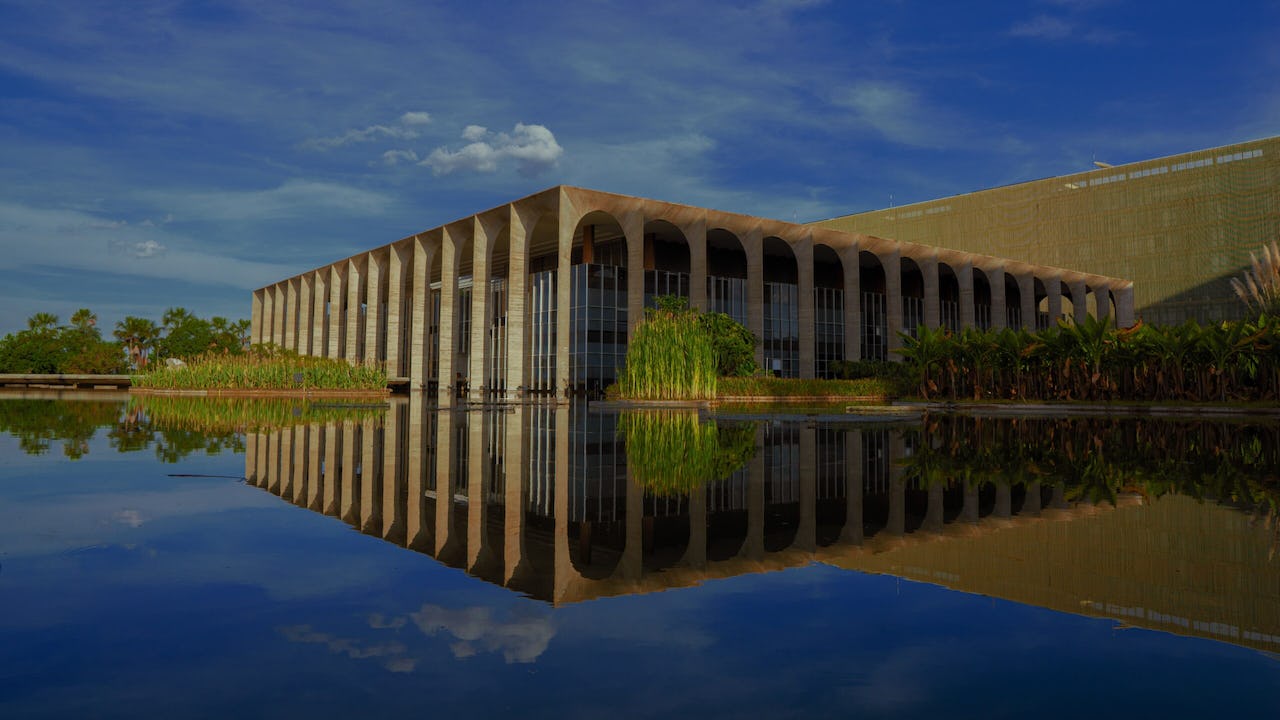Brazil in the Arctic Council: Not as Crazy as it Sounds

Itamaraty Palace, home of the Brazilian Ministry of Foreign Affairs. Photo: Luan de Oliveira Silva
Even though its capital, Brasilia, is about 7.000 miles from the North Pole, Brazil has consistently expressed interest in the Arctic region throughout the 21st century. Although including Brazil as an observer in Arctic dialogue fora such as the Arctic Council may sound superfluous at first, Brazil shares many of the same insecurities about the Amazon as polar states do in relation to the Arctic, and through participation in groups as the G20 and the BRICS, it could even act as a bridge between the West, Russia, and China in the occasion of the reopening of the Arctic Council.
Brazil’s interests in the Arctic are not new. In 2010, under President Luis Inacio Lula da Silva, Brazil held discussions on whether to accede to the Svalbard Treaty and apply for observer status in the Arctic Council. In 2019, rekindled talks by the Foreign Ministry held at the Navy Center for Political and Strategic Studies in Rio de Janeiro resulted in the creation of the “Technical Group on Arctic Activities”, and, in 2022, Brazil’s Interministerial Commission on Sea Resources officially recommended the Presidency to ratify the Svalbard Treaty and plea for Arctic Council membership.
What does the Arctic offer Brazil?
To Brazil, it makes sense to be a part of the Arctic dialogue. Brazil has been economically involved in the Arctic by exporting deep-water oil and gas extraction equipment to Arctic states – and considers furthering involvement in the Arctic as the necessary next step to the development of its own oil and gas industry. Beyond that, new technologies currently being employed in the Arctic in sectors such as communications, emergency preparedness, and satellite monitoring, could also be implemented in Brazil’s Amazon and exclusive economic zone (called by many “The Blue Amazon”).
Institutionally, Brazil could also learn from Arctic states how to further develop fora of dialogue focused on specific issues. Institutions such as the Amazon Cooperation Treaty Organization, established in 1978 between the rainforest nations, and the Leticia Pact, signed in 2019 to promote conservation measures in the Amazon, could still be further developed in the model of the Arctic Council, for example.
What does Brazil offer the Arctic?
Now, the Arctic Council could also benefit from having Brazil. Brazil shares many of the same ontological insecurities with Arctic states and has actively been working in reformulating its policy as one of the main proponents of multipolarity in the world stage. First, Brazil and polar states both share the burden (and the privilege) of hosting regions of major importance to the world – the Arctic and the Amazon Rainforest, which are also extremely vulnerable to climate change. A higher level of dialogue between representatives of both regions could help expand conservation efforts. Furthermore, Brazil does have a long history of peaceful research activities in polar zones due to its Antarctic Program, which could be brought up to the Arctic fold.
Second, both the Amazon and the Arctic do have Indigenous communities which advocate for more representativeness in affairs concerning their territories. While the Arctic Council has Indigenous organizations as permanent participants, several ministerial meetings have seen those organizations demanding their voices and claims to be truly heard and acted upon. With the same happening in Brazil, it created in the start of 2023 the Ministry of Indigenous Peoples, which is presided by Indigenous peoples, and focuses entirely on the demands of the multiple Brazilian Indigenous groups. This could serve as a model in favor of a more inclusive and extensive pan-Indigenous movement, which would also benefit the Arctic.
Third, Brazil has been seen as a big proponent of multipolarity on the world stage, which includes supporting south-south relations through groups such as the BRICS. This means that even though Brazil keeps close relationships with developed and developing countries through groups as the G-20, relations between Brazil, Russia and China remained largely unchanged after the invasion of Ukraine in February of 2022. In a hypothetical time when the Arctic Council resolves to re-launch its activities, Brazil could act as a bridge to re-establish dialogue between Russia and the West.
In sum, having Brazil as an observer in the Arctic Council is not as foolish as it may sound at first. With its new foreign policy centered towards sustainable development and the conservation of the Amazon, Brazil could act as a weighty partner in the Arctic region – particularly in regard to climate change, the promotion of Indigenous governance, and co-existence of Russia and China. As the first country in the Southern Hemisphere to be a part of the Arctic Council, Brazil could be an innocuous, but safe, bet towards enhanced cooperation and dialogue with non-Arctic states.
Renato Fakhoury is a PhD student in Global Studies at the University of Massachusetts in Lowell and a research fellow at the North American and Arctic Defense and Security Network (NAADSN).